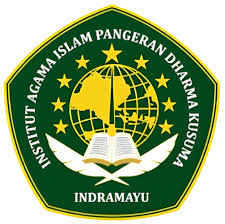Kontribusi Hukum Ekonomi Syariah dalam Pengembangan Industri Perbankan dan Keuangan Syariah
DOI:
https://doi.org/10.55656/tjmes.v5i1.226Abstract
Islamic Economic Law has been a key driver in the development of Islamic banking and finance industries in various countries. With principles rooted in Islamic law, this industry offers financial solutions in line with religious values, avoiding prohibited practices of interest and speculation. Its contribution in expanding Islamic financial markets, enhancing financial inclusion, and providing more ethical investment alternatives is increasingly significant. This research discusses the positive impact of Islamic Economic Law on the growth of Islamic banking and finance industries, as well as the factors driving its success. The analysis employs a qualitative approach by examining relevant literature and case studies of Islamic banking industries in various countries. The findings indicate that the application of Islamic Economic Law principles stimulates product innovation, enhances consumer confidence, and provides financial system stability.
Keywords: Islamic Economic Law, Islamic Banking Industry, Islamic Finance, Financial Inclusion, Islamic Principles.
References
Amrin. (2022). Strategi Ekonomi Syariah dalam Mewujudkan Kemakmuran Umat di Indonesia pada Era Modern. Al-Ahkam: Jurnal Ilmu Syari’ah Dan Hukum, Vol. 7, Nomor 1, 2527–8169.
Antonio, M. S. (2001). Bank Syariah: Dari Teori ke Praktik. Jakarta: Gema Insani Press.
Chapra, M. U. (2000). Islam and the Economic Challenge. Islamic Foundation.
Hasan, Z. (2014). Islamic economic ethics: An outline of its principles and scope. Journal of Islamic Economics, Banking and Finance, 10 (2), 33–50.
Hassan, M. K., & Mervyn, K. L. (2007). Handbook of Islamic Banking. Journal of Islamic Accounting and Business Research, Vol. 2, No. 1, 1–14.
Iqbal, Z., & Abbas, M. (2011). An Introduction to Islamic Finance: Theory and Practice. Review of Islamic Economics, Vol. 9, No. 1, 1–24.
Ismail, A. G. (2010). Money, Islamic Banks and the Real Economy. Singapore: Cengage Learning.
J. Moleong, L. (2013). Metodologi Penelitian Kualitatif. Bandung: Rosdakarya.
Karim, A. A. (2004). Bank Islam: Analisis Fiqih dan Keuangan. Jakarta: PT RajaGrafindo Persada.
Lewis, M. K., & Latifa M, A. (2001). Islamic Banking. Edward Elgar Publishing.
Mannan, M. A. (1997). Islamic Economics: Theory and Practice. Lahore: Islamic Publications Ltd.
Otoritas Jasa Keuangan (OJK). (2021). Outlook Industri Perbankan Syariah. Jakarta: OJK.
Rasyid, F. (2022). Metodologi Penelitian Kualitatif Dan Kuantitatif Teori, Metode, Dan Praktek. Kediri: IAIN Kediri Press.
Sabatier, P. A., & Mazmanian, D. (1980). The Implementation of Public Policy: A Framework of Analysis. Policy Studies Journal, 8 (4), 538–560.
Warde, I. (2000). Islamic Finance in the Global Economy. Edinburgh University Press.
Yusuf, M. (2013). Islamic perspectives on economic development. Journal of Islamic Economics, Banking and Finance, 9 (2), 70–86.








